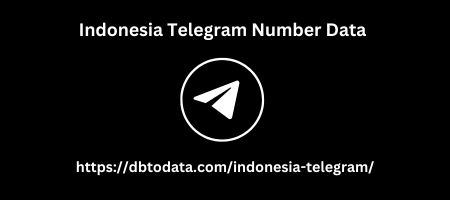Post by account_disabled on Mar 6, 2024 4:53:53 GMT
Yet having gone through this process, they aren’t that trustworthy, here’s why: Filter One: I question how honest and authentic recommendations are when the system primarily has features that vet out unwanted reviews.or someone I’ve worked with requests a recommendation, this means they are expecting a positive review. saying something bad about someone else (even if it’s true) isn’t going to help your network, so the the contributor is biased. Filter Two: Then, they can review my submitted review, and then accept or reject. , and ask me to rewrite it once before (I think it may have been because I had a typo). , it’s unlikely that you’ll see reviews that are have objective content, or negative information.
Now it’s not just recommendation Indonesia Telegram Number Data systems in business social networks, it’s also case studies from vendors, and customer testimonials.
All of this content is cleaned, scrubbed, and presentable in favor the seller. Potential Solutions RSomers suggested that LinkedIn reduce the number of recommendations people can give. Like UserVoice or Deal Ideastorm they give a certain amount of points anyone can use, forcing people to be choosey and selective in where they put their vote. Also, Get Glue has interesting technology to do this for the media side –maybe they can apply this to job candidates too. References Will Always Have Their Place I triggered a discussion on twitter, and had a variety of responses, many who see the positives.

At least two people told me they received their jobs from recommendations they’d received on LinkedIn, but not because the content was objective, but because it triggered a notification in the references stream –causing word of mouth to happen. Luke said he got his job from a LinkedIn recommendation, and says ‘who’ reccomends him is more important. Recommendations in any form still matter, but become more relevant if they come from someone who are at the top of their game, or have a relationship to the buyer. This isn’t to say that none of these are helpful, they have their time and place in the marketing process. While a plethora of glowing references on a company or professional profile on LinkedIn may seem like typical marketing –in the end, smart buyers and employers will dig deeper to find where sellers and candidates shine –and need some polishing.
Now it’s not just recommendation Indonesia Telegram Number Data systems in business social networks, it’s also case studies from vendors, and customer testimonials.
All of this content is cleaned, scrubbed, and presentable in favor the seller. Potential Solutions RSomers suggested that LinkedIn reduce the number of recommendations people can give. Like UserVoice or Deal Ideastorm they give a certain amount of points anyone can use, forcing people to be choosey and selective in where they put their vote. Also, Get Glue has interesting technology to do this for the media side –maybe they can apply this to job candidates too. References Will Always Have Their Place I triggered a discussion on twitter, and had a variety of responses, many who see the positives.

At least two people told me they received their jobs from recommendations they’d received on LinkedIn, but not because the content was objective, but because it triggered a notification in the references stream –causing word of mouth to happen. Luke said he got his job from a LinkedIn recommendation, and says ‘who’ reccomends him is more important. Recommendations in any form still matter, but become more relevant if they come from someone who are at the top of their game, or have a relationship to the buyer. This isn’t to say that none of these are helpful, they have their time and place in the marketing process. While a plethora of glowing references on a company or professional profile on LinkedIn may seem like typical marketing –in the end, smart buyers and employers will dig deeper to find where sellers and candidates shine –and need some polishing.
